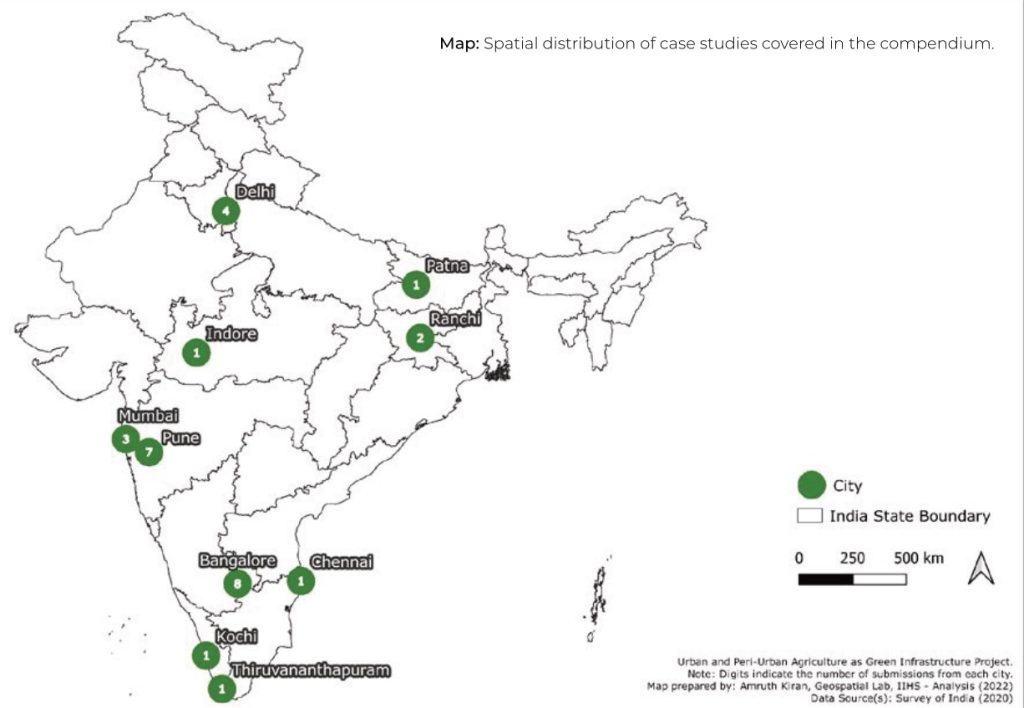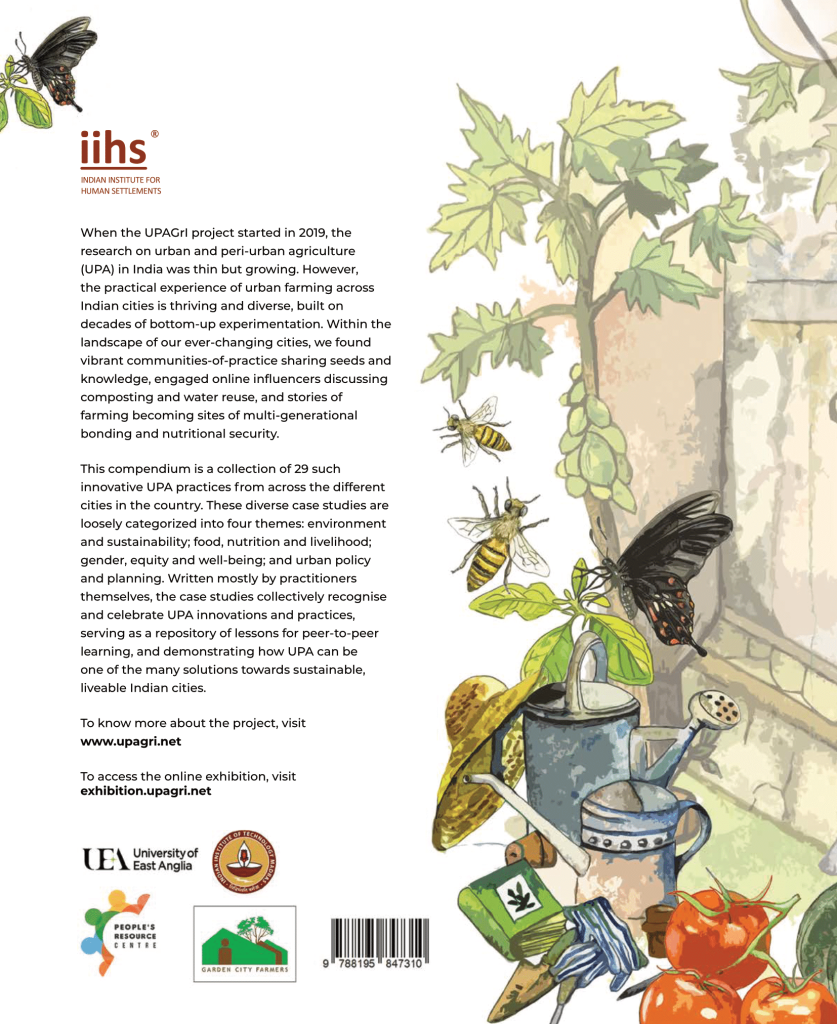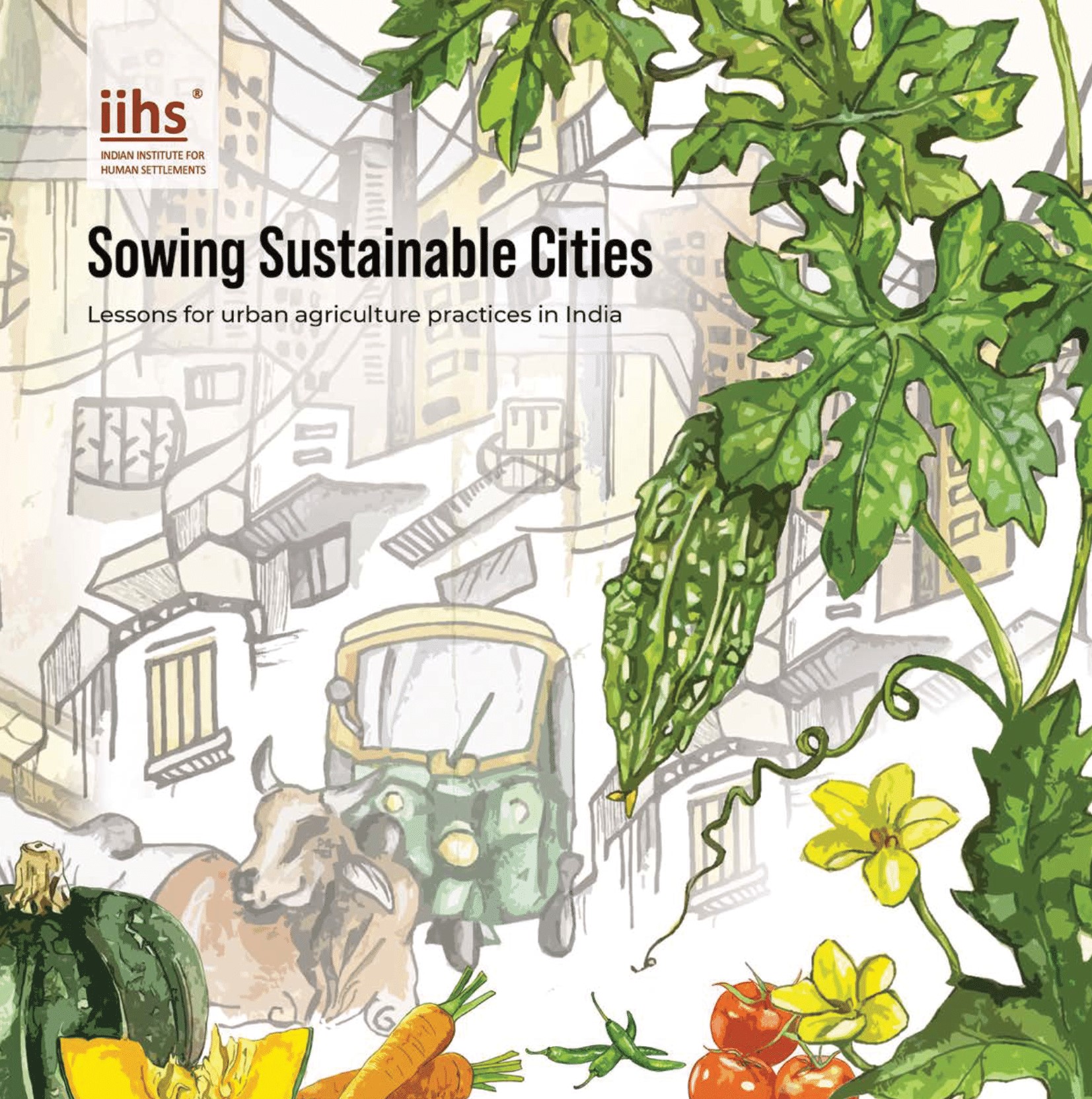A Compendium in collaboration with Indian Institute of Human Settlements
The collaboration between the People’s Resource Centre and the Indian Institute of Human Settlements resulted in the publication of a compendium on Urban Agriculture Practices (UPA) in India. The purpose of this project was to address the lack of academic literature and documentation on Urban and Peri-Urban Agriculture Practices in the country. The compendium is a compilation of practical experiences from various regions of India, representing a wealth of knowledge and expertise gained through years of grassroots experimentation.
The compendium aims to recognize and celebrate the innovators and practitioners in UPA, showcasing a collection of innovative practices from across the country. It serves as a repository of good practices and lessons for peer-to-peer learning, demonstrating how UPA can contribute to sustainability and well-being in Indian cities. The compendium covers 29 case studies, categorized into four themes: environment and sustainability, food, nutrition, and livelihood, gender and subjective well-being, and urban policy and planning.
Most of the case studies were written by the practitioners themselves, with editorial support from the Word Lab at the Indian Institute for Human Settlements. Researchers from the People’s Resource Centre, New Delhi, also contributed to the compendium based on their extensive studies on urban and peri-urban agriculture in various cities across the country.
The case studies included in the compendium represent a wide range of locations and ecosystems, such as urban wetlands, common lands, individual, community, or institutional (including government) owned lands, leased land (collective or individual), and river banks, among others. Furthermore, the case studies highlight the involvement of diverse practitioners, considering factors such as gender, class, ethnicity, and institutional affiliations (both government and non-government).
The compendium also showcases several innovative initiatives that have facilitated community action, environmental awareness, education, and livelihood generation, particularly benefiting marginalized communities. These initiatives demonstrate the positive cascading effects of UPA.



